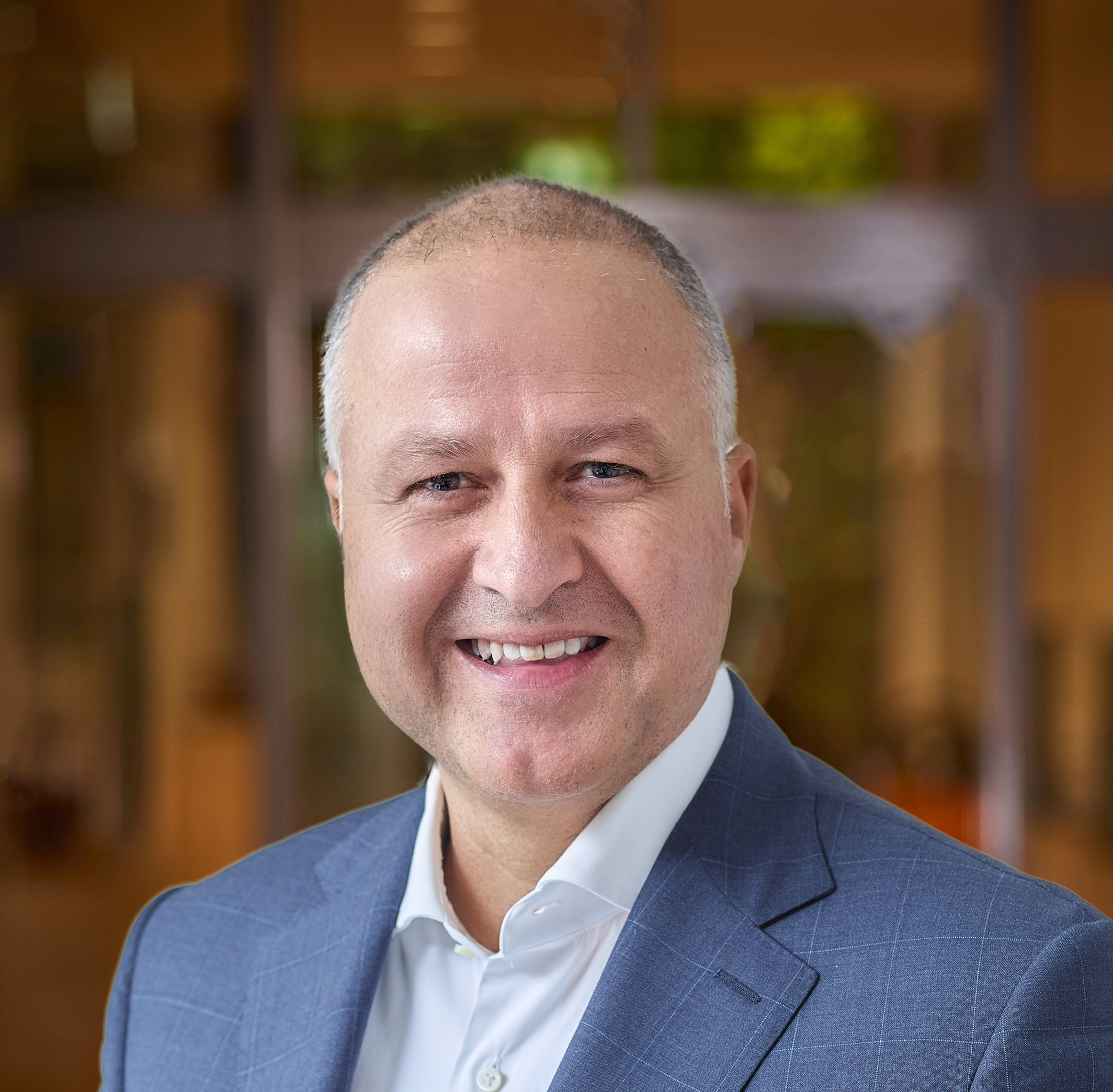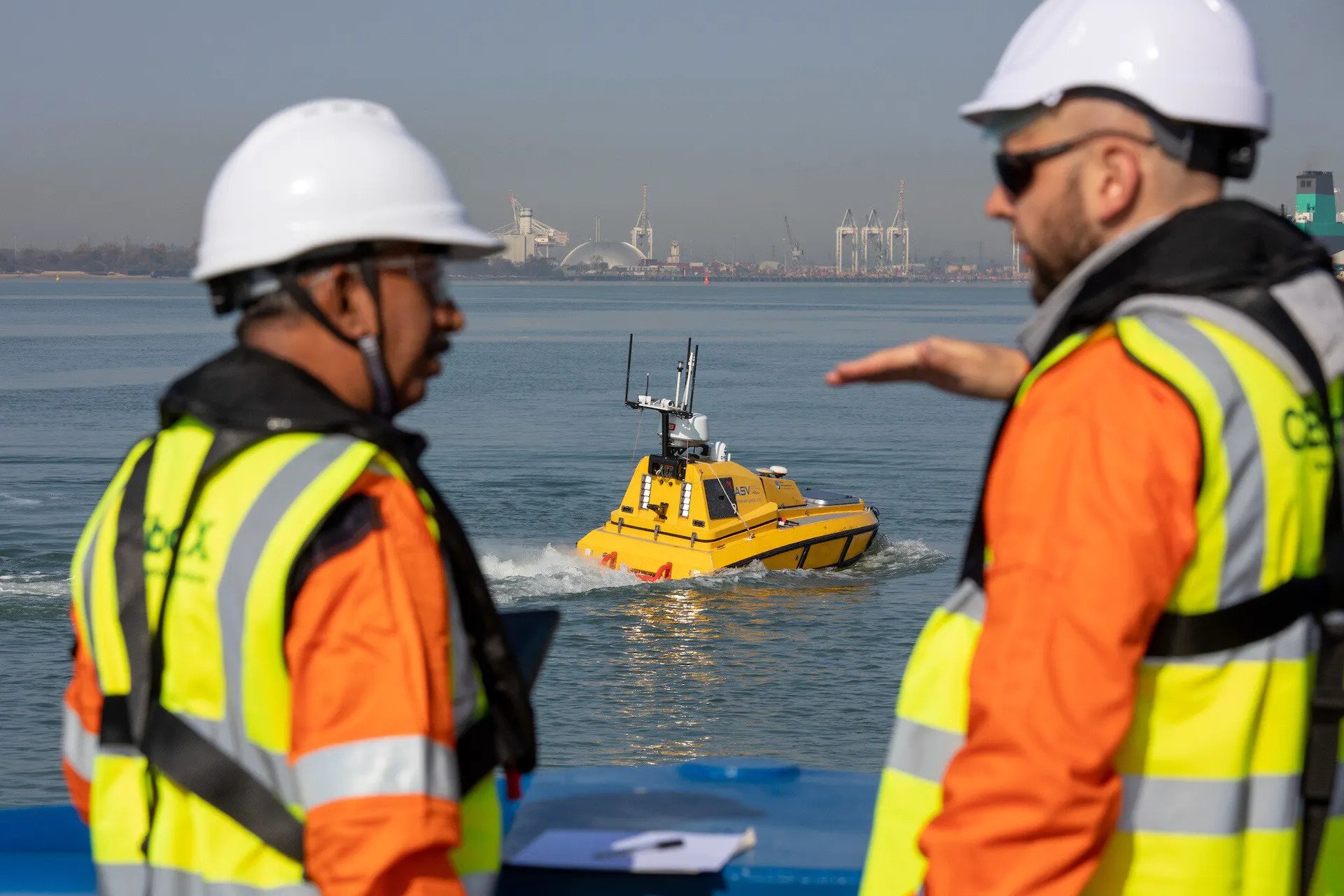The energy sector skills shift: What we've learned about recruiting and reskilling
- 6 Min Read
Erwin Hoogeveen, Chief Human Resources Officer at Fugro, presents findings from the energy sector’s skills shift and provides a framework for next-generation skills pathways that transform recruitment, reskilling and retention.
- Author: Erwin Hoogeveen
- Date published: Jul 24, 2023
- Categories

Across all kinds of sectors, a combination of technological advances and increased connectivity drive huge changes in organizational structures. They shift the types of skills we need in the workplace. For an organization the size of Fugro, with over 11,000 employees across 57 countries, this is nothing short of transformational to our recruitment, training, and retention programs.
The skills shift is particularly acute in the energy sector. Indeed, the clean energy transition is expected to generate 10.3 million net new jobs globally by 2030. While existing skilled workers from other sectors will play a role, there is still set to be a shortfall as organizations automate and robotize operations. Naturally, this places additional pressure on the industry’s ability to reskill, recruit and retain.
These pressures are symptomatic of a shift in many other industries, from healthcare to construction, finance to marketing. The World Economic Foundation’s Future of Jobs report for 2023 has found that AI and big data skills are the number three priority in company training strategies globally from now until 2027. 60% of the companies surveyed, meanwhile, highlight the difficulty in bridging skills gaps locally, and 53% identify their inability to attract talent as the main barrier to transformation.
A skills shift means new types of job roles
While HR has made a huge amount of progress towards remote operations and autonomy, the progress toward commercialization is still slow. Factors like lagging governmental regulations, people management, and future talent all play a part. But slowly and surely, unmanned remotely operated vessels receive approvals from governmental bodies globally to operate in marine environments. Securing the right skilled personnel is both a challenge and an opportunity and as we prepare for tomorrow, we have a major responsibility here to build a more diverse and inclusive workforce.
For example, a systems engineer, surveyor, or geologist no longer needs to be offshore for weeks at a time. They can now pursue their technical career at an onshore operations center, offering a better work-life balance as well as greater safety. This opens these roles to a much wider pool of candidates.
Redesigning talent acquisition and recruitment processes
These new job roles are also a chance to rethink how we design talent acquisition and recruitment processes. These processes have become more agile and less reliant on traditional rigid job descriptions. They leverage technology to not only score candidates against a greater number of criteria but also understand the existing talent pool’s range of skills and identify opportunities where employers can further develop internal hires.
This pipeline of talent is important for establishing the role models and support networks that act as a virtuous circle, encouraging others from underrepresented groups to join and progress. For example, Fugro has a target for women to hold at least 25% of all senior management positions in 2025.
Progress is already happening as candidates from a more diverse range of backgrounds move into available roles. Being more systematic and strategic with our onboarding process also allows these candidates to get up to speed more quickly, making them feel part of the team and able to contribute sooner.
For example, Fugro uses behavioral-based interviewing techniques to assess a candidate’s skills and suitability for the role, instead of relying solely on resumes and cover letters. This helps us identify candidates who possess the skills we require and are a good fit for the organization.
Creating skills pathways
As well as opening opportunities to more types of people, engineering’s skills shift also calls for expertise that might once have been limited to a deep technology business. We’re looking for talent with skills in data science, software, IT, and other digital expertise. Not only that, but we need to nurture it ourselves. Remote operations jobs within engineering simply did not exist a few years ago, meaning the onus is on the industry to help create pathways for learning, development, and deployment.
In April 2023, for example, Fugro officially opened the new remote operations training center in Plymouth, offering a new introductory course covering the operations of ROVs (Remote Operations Vehicles) for both internal and external candidates.
A candidate’s technical competency has a validity period, and while a CV outlines experiences, they often lack this detail. By introducing not only training programs of our own, but means for candidates to validate their competence, we’re able to recruit those with the right skills who are actively working on their continual development.
Changing HR approaches
These changes in the approach to recruitment are significant for HR leaders. As employers compete for talent with skills in everything from Agile development methodology, databases, and SQL, to virtual and immersive reality, HR needs to work even more closely with the rest of the business to understand what other leaders need from talent.
As job roles change, career paths also need to adapt to keep staff engaged. This comes from having a closer, ongoing dialogue between HR and the rest of the business. It means organizations do not just see HR as a business function that only involves itself when there is a vacancy or a problem. Centralizing people data and using Human Capital Management (HCM) software to provide modeling and analysis functionality is one way that Fugro has been able to do this. Managers who are often time-poor can quickly see specific competencies and career paths of employees and identify any areas where there might be skills shortages that may need supplementing.
HR can make a difference when managers are time-poor by streamlining HR processes and offering them in a self-service format. This frees up time and allows managers to focus on their primary responsibilities.
Prioritizing skills and competencies
More flexible and agile work arrangements drive a greater emphasis on cross-functional teams and project-based work. HR needs to give more priority to skills and competencies rather than fixed titles and descriptions. Fugro has invested in systems to help standardize the HR data we’ve been historically collecting. This makes it easier to gather and analyze data to track our progress.
Every company is increasingly a technology company. This ranges from the products and services they’re developing, to the systems they use to operate and manage the day-to-day. With development cycles and client expectations more challenging than they ever have been, only a strong talent strategy will put an organization on the best foot for the future.










